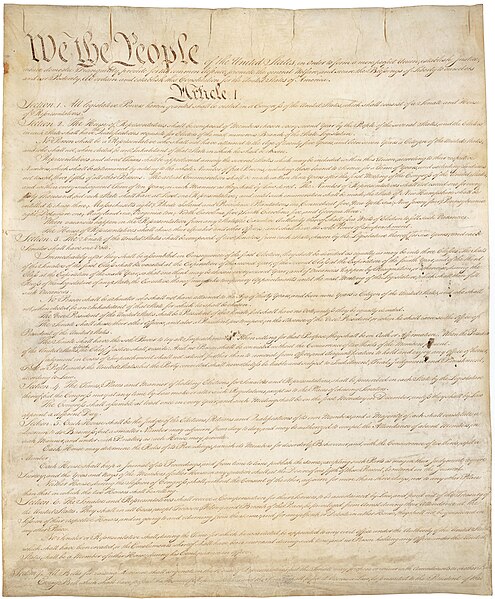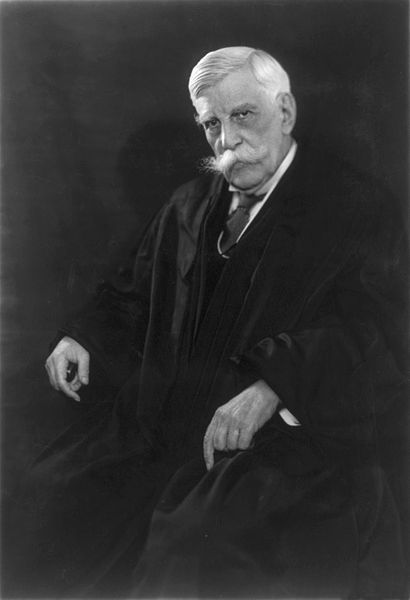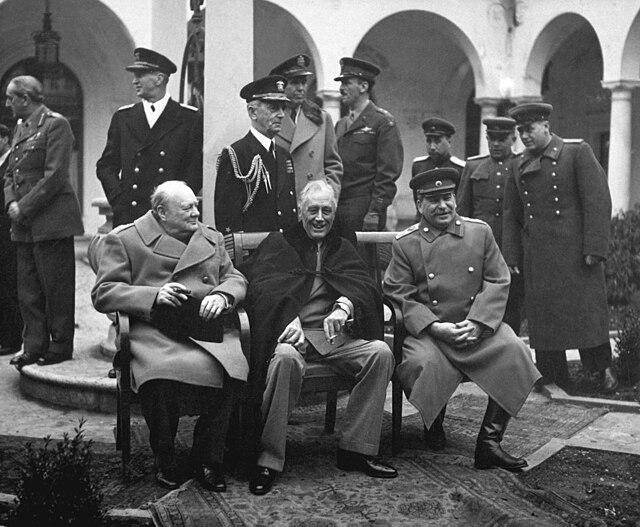The Bricker Amendment is the collective name of a number of slightly different proposed amendments to the United States Constitution considered by the United States Senate in the 1950s. None of these amendments ever passed Congress. Each of them would require explicit congressional approval, especially for executive agreements that did not require the Senate's two-thirds approval for treaty. They are named for their sponsor, conservative Republican Senator John W. Bricker of Ohio, who distrusted the exclusive powers of the president to involve the United States beyond the wishes of Congress.
The Constitution of the United States granted the federal government control of foreign affairs.
Justice Oliver Wendell Holmes' opinion in Missouri v. Holland was cited as a justification of the Bricker Amendment.
President Franklin D. Roosevelt (center) at Yalta in 1945, where he made an agreement with Winston Churchill and Joseph Stalin which was asserted to show the need for a constitutional amendment.
John Foster Dulles said restrictions were needed on treaties, until he became Secretary of State in the Eisenhower Administration.
John William Bricker was an American politician and attorney who served as a United States senator and the 54th governor of Ohio. He was also the Republican nominee for Vice President in 1944.
Bricker in 1944





